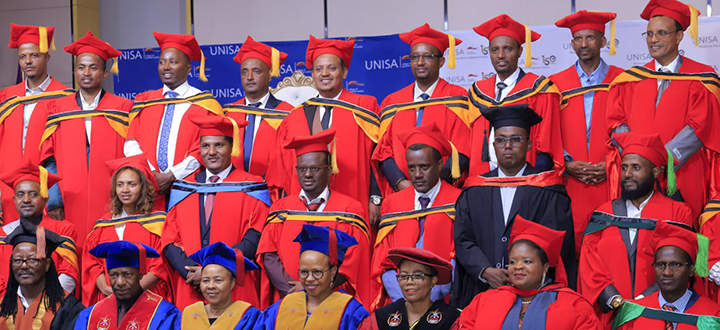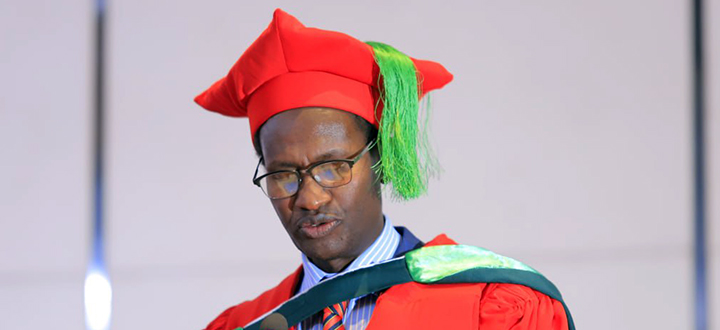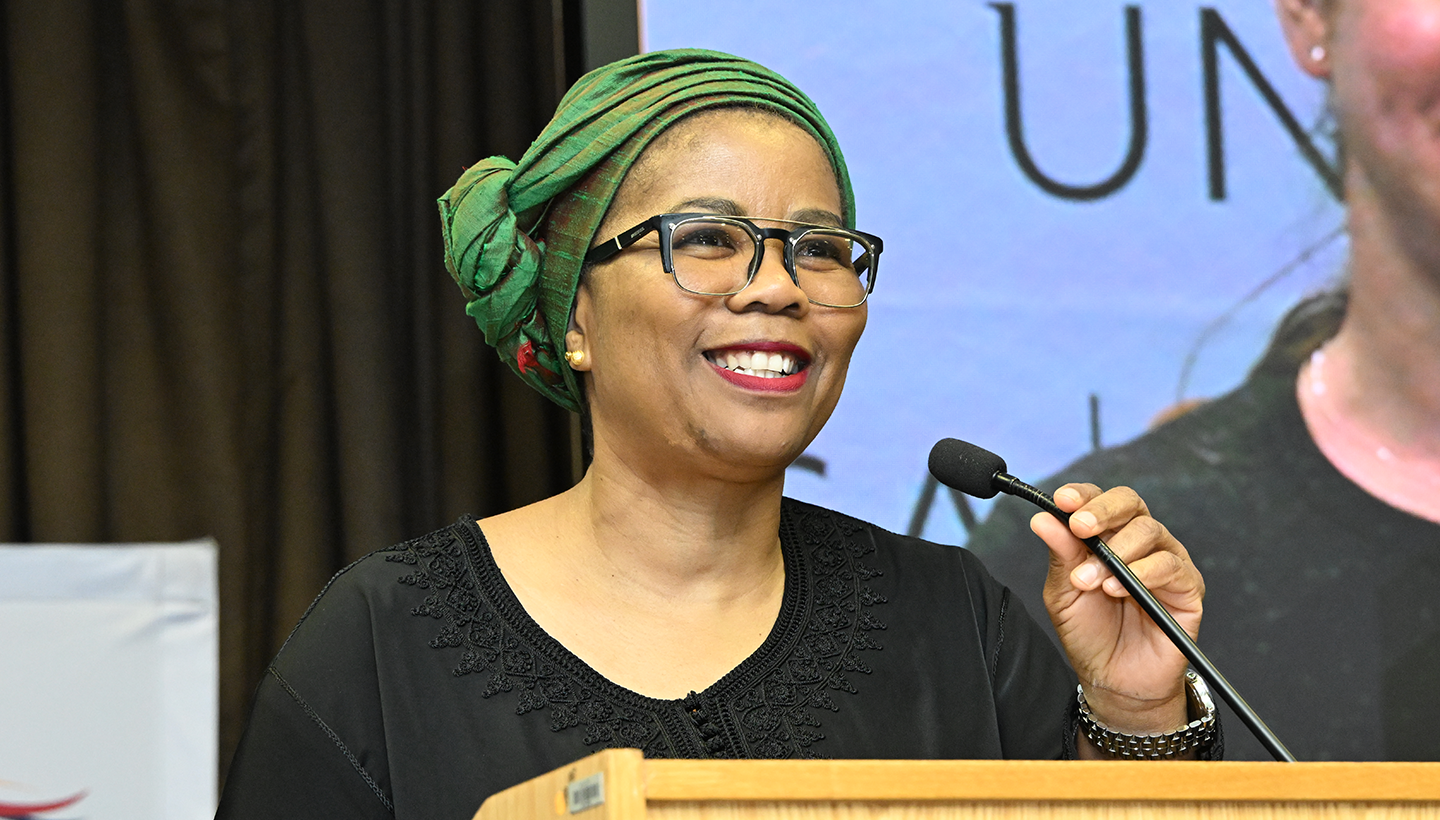News & Events
Ethiopian postgraduate students proudly walk the stage at vibrant Unisa graduation ceremony
On 7 December 2024, at a vibrant ceremony held at the Skylight Hotel in Addis Ababa, Ethiopia, Unisa celebrated the graduation of 62 postgraduate students. The event was graced by Her Excellency Dr Mimmy Gondwe, Deputy Minister: Higher Education and Training of the Republic of South Africa, Dr Eba Mijena, Director-General: Higher Education Academic Affairs, Ethiopian Ministry of Education, Lady Justice Meaza Ashenafi Mengistu, Former President of the Supreme Court of Ethiopia, Professor Puleng LenkaBula, Unisa Principal and Vice-Chancellor, other high-ranking officials from the Ethiopian and South African governments, diplomats from the Embassy of the Republic of South Africa, and members of Unisa's executive management.

Graduates with the academic procession
The Unisa Ethiopia Regional Learning Centre, established following a bilateral agreement between Ethiopia and South Africa, exemplifies the successful collaboration between the two nations. The centre has played a crucial role in building the capacity of Ethiopians and other nationals, with a significant number of students completing their doctoral and master's programmes since its inception.
Unisa is very proud of the graduates who completed doctoral programmes and master's degrees. This brings the total number of graduates from the centre to 1 099, which includes the recipients of 571 doctoral and 377 master's degrees. Many of these graduates are university academics who are already contributing to Ethiopia's academic and intellectual growth. Notably, Unisa graduates hold key leadership positions across various sectors of the Ethiopian economy, including at tertiary institutions; in government; in public and private enterprises; in justice and police organs; at public health institutions; in NGOs; and in regional and international organisations.

Her Excellency Dr Mimmy Gondwe, Deputy Minister: Higher Education and Training, Republic of South Africa
In her address at the ceremony, Gondwe highlighted that the agreement between Unisa and the Government of Ethiopia is a flagship programme of the bilateral cooperation between South Africa and Ethiopia. She also stated that “this graduation underscores the Department of Higher Education and Training’s contributions to the African Union’s Year of Education programme. It aligns with the AU’s 2024 theme: Educate an African Fit for the 21st Century: Build Resilient Education Systems for Increased Access to Inclusive, Lifelong, Quality, and Relevant Learning in Africa.”

Dr Eba Mijena, Director-General: Higher Education Academic Affairs, Ethiopian Ministry of Education
Mijena, in his speech representing the State Minister of Education of Ethiopia, emphasised that the graduation ceremony celebrated the outstanding achievements of the graduates and the enduring partnership between South Africa and Ethiopia, a shining example of African unity and cooperation. He praised Unisa's role in advancing high-level human capacity development in Ethiopia, and its commitment to promoting science and education through collaboration with Ethiopian universities. “By working together, sharing knowledge, and engaging in meaningful research, we foster a culture of intellectual exchange that transcends borders,” he said, adding that “this collaboration demonstrates that when African nations unite, we can achieve remarkable accomplishments and create a brighter future for all.”

Prof Puleng LenkaBula, Unisa Principal and Vice-Chancellor
In her congratulatory address, Professor LenkaBula noted, “This year’s graduation ceremony is extraordinary,” referring to South Africa's celebration of 30 years of freedom and democracy. She acknowledged the significant role of Ethiopia and other African countries in the fight against apartheid, stating, “Today, as we celebrate South Africa, we also celebrate Ethiopia and Africa as a whole,” she continued. “Without the significant material support of the African people in the fight against apartheid in South Africa, including efforts to isolate apartheid South Africa, our freedom could have come later and at a far greater cost.”
She also highlighted that the Ethiopia Regional Learning Centre is a practical example of how Unisa invests in Africa’s future in science, innovation, human capacity development and leadership, for the continent's renewal and sustainability. She expressed the university’s desire to make the Ethiopia Centre an East African regional hub, through vital partnerships.
* By Meseret Melese Tefera, Deputy Director, Unisa Ethiopia Regional Learning Centre
Publish date: 2025/02/07
